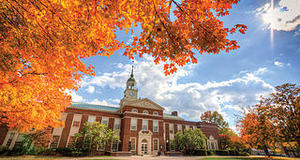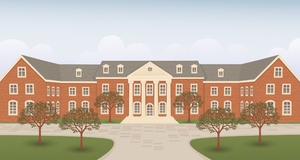On Thursday 25th November, over 15,000 students gathered in London for a march and rally against tuition fees and student loans. Since the New Labour government announced they would implement the Dearing report’s recommendation to charge people to go to university, most of the student population has suffered financially. In the last year, mature student applications to UCAS have dropped by 26% and many school leavers have had to choose full time employment over a degree because they just can’t afford to come to university. Labour say that they’re trying to get 50% of people to university, but they are be going in exactly the wrong direction. To increase the appeal of University they need to make things better for students, rather than condemning us to three or four years of poverty, and then up to 20 years of debt afterwards. Isn’t that when we’re supposed to be raising families? What kind of upbringing are the next generation going to have if their parents are continually trying to pay off their student loans?
Apart from the repayments, the reality for most students while at university is an unacceptably low standard of living. Having to work during term time compromises the quality of degree you can attain, so those who can scrounge off their parents have more time to spend on coursework, and will clearly get better results. Still expanding educational opportunities? The arguments in favour of tuition fees rest on the assumption that graduates will get better-paid jobs than non-graduates. However, this is not the case in reality, and as long as we have any level of unemployment, job opportunities cannot be used to justify inflicting costs on students. The government think we should be prepared to take risks in order to be able to attempt to get a decent job. This isn’t fair at all; we’re only trying to make our future more secure, while the government inflicts long-term penalties on us for trying to better ourselves.
Apparently, the third poorest don’t have to pay a penny, and will receive the colossal sum of £3,600 in their loan this year (less than the Jobseeker’s Allowance). In reality, this is only a few of the poorest, and the rest are those rich enough to know of a dodgy accountant who can fix the assessment forms for them. Tuition fees also help strengthen the dependency culture that the capitalists say they hate so much. At 18 years old, people are no longer children, they are adults, and shouldn’t have to go running to Mummy and Daddy for money to buy food or pay their rent. It’s degrading and demeaning to have every inch of pride squeezed out of you by financial necessity, to have forced dependence of someone else while you’re trying to make your own way in the world.
Worryingly, the Conservative Party has promoted the idea that universities can set their own fee levels, making the highest achieving colleges open only to those with most money. Although realistically the Tories will not be in government for at least the next seven years, we all know where Labour’s policy ideas originate.
There was, we thought, the possibility of devolution having an impact on tuition fees in Wales and Scotland, with the Liberal Democrats being better represented in both countries than in Westminster. But their strange desire for a Lib-Lab coalition has overridden all their promises to protest as strongly as they can. Jim Wallace in Scotland and Mike German are still occasionally spouting off about how New Labour has deceived the working class, but until they actually do something about it, even just raising a debate in their parliaments, their long-winded speeches are just empty rhetoric, designed only to attract the student vote by pretending they actually care about us.
Our own union leaders are no better. The London march came two years too late and was organised by the NUS only because they had no other option. There were countless NUS officials acting as stewards, shepherding us along the streets of London like schoolchildren, and they got incredibly irate when we decided to sit down in the street. Unbelievably, Andrew Pakes had the audacity to stand up at the post-march rally and condemn the fees introduced by his friend Tony and also to criticise the Socialist Worker and the campaign to Save Free Education for joining in the march and corrupting our precious little minds. Sorry Andrew, but some people realise just how serious the situation is; and believe it or not, just because you don’t, it doesn’t mean that there aren’t any people who actually care. The sad fact is the march was pathetic. It moved along the back streets of London, and instead of ending up in Kensington, which would have guaranteed publicity with the by-election being on, the organisers took the fantastic opportunity of sending us via deserted back streets to Kennington, just so no-one could see us, in case it compromised any of the NUS members chances of being a New Labour spin doctor. There was absolutely no media coverage, which unfortunately means that politicians were not forced to take notice (there was only 1 MP on the march), and therefore the entire day was probably useless.
I can only hope that I’m being unnecessarily pessimistic, that we do soon see a reversal in the fortunes of students all over Britain, as really it cannot go on like this for much longer. But this is another example of the government knowingly widening the gap between the rich and the poor in society. Education should come under the bracket of the welfare state, not be abandoned to the lottery of the market. It is supposed to be free. Yes, FREE. Available to everyone, not just the few who have a small fortune or those who, like the majority of us, are stupid enough to run the risk of being unemployed with mounting debts of over £12,000 at the age of 22. Cheers Tony, we’ll remember this.


















